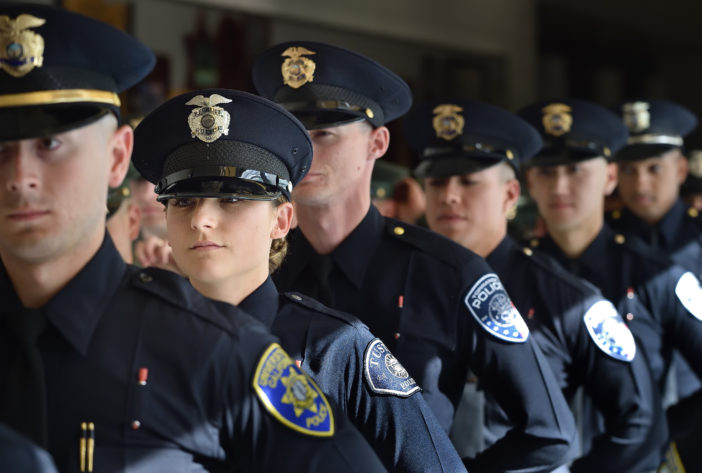Governor Gavin Newsom in September signed into law Senate Bill 2 (SB 2), a bill intended to increase accountability for misconduct by peace officers in California.
SB 2 will make five significant changes:
- Creates a process for the Commission on Peace Officer Standards and Training (POST) to revoke certifications for peace officers, disqualifying them from peace officer employment in California;
- Expands the list of circumstances that will disqualify a person from employment as a peace officer;
- Requires law enforcement agencies to investigate all complaints or claims of serious misconduct regardless of whether the officer(s) is still employed by the agency;
- Requires law enforcement agencies to report to POST all complaints, claims, allegations, and findings of serious officer misconduct; and
- Removes several immunity provisions for peace officers and their agencies in civil rights lawsuits.
While the law’s overall intent is clear, the details will have to be sorted out.
For instance, the bill lists the grounds for decertification for “serious misconduct,” which includes “[p]hysical abuse, including, but not limited to, the excessive or unreasonable use of force.” However, “unreasonable” use of force and what constitutes “physical abuse” are undefined.
POST is not required to define “serious misconduct” by January 1, 2023. Yet, agencies will have to make disciplinary decisions before then.
Other undefined grounds for decertification include “abuse of power” and “sufficiently egregious” misconduct. Certainly, one can imagine examples such as financial fraud or sex crimes would fall under this category. However, the terms are open-ended enough to raise questions.
An officer may be decertified for “demonstrating bias,” but that term is vague and undefined, especially if SB 2 does not limit an employee’s rights under the First Amendment. Does a comment on a private social media account establish cause for decertification? Or would that be protected under the First Amendment?
These and other issues will need further clarification.
Decertification Grounds
SB 2 significantly expands POST’s authority in a variety of ways.
Currently, POST has the authority to cancel a certificate that was awarded in error or obtained fraudulently, but cannot otherwise cancel a previously-issued certificate.
SB 2 requires POST to revoke certification for those who become ineligible, and allows disqualification from employment as a peace officer based on felony conviction; crimes of dishonesty or corruption; POST certification being revoked, surrendered, or denied; and more.
POST will have the discretion to revoke or suspend the certification of a peace officer who has been terminated for cause, or otherwise engaged in, “serious misconduct,” yet SB 2 leaves the precise definition of “serious misconduct” open to interpretation by POST but requires the definition to include: abuse of power, physical abuse, sexual assault, acts that violate the law, and more.
Decertification Process
SB 2 also authorizes POST to conduct investigations to determine the fitness of any person to serve as a peace officer in California, and to conduct audits of agencies that employ peace officers.
To this end, SB 2 establishes a Peace Officer Standards Accountability Division (Division) within POST, which will review investigations conducted by law enforcement agencies and conduct its own investigations. The Division will have the responsibility to make findings and recommendations to the commission, to conduct administrative proceedings seeking suspension or revocation, and to accept complaints from members of the public. The bill amends the Penal Code Section 832.7 (also known as the Pitchess statute) to allow disclosure to POST of otherwise-confidential peace officer personnel records.
SB 2 directs the Governor to establish a Peace Officers Standards Accountability Board by January 1, 2023. The Board will hear the findings and recommendations from the Division and make recommendations on decertification.
Conclusion
SB 2 is a broad and complex legislative act, with significant ramifications and confers significant authority and discretion to POST.
Every public agency that employs peace officers in California must prepare to ensure they are ready to comply with SB 2.
Joung H. Yim is an Associate in Liebert Cassidy Whitmore’s Los Angeles Office where he assists clients in matters pertaining to labor and employment law. For 15 years, Joung has successfully represented cities, counties, and special districts in legal matters arising out of public employment, including issues pertaining to discrimination, harassment, wrongful termination, and retaliation. While Joung represents all types of employers, he has extensive experience representing law enforcement and fire agencies, including successfully prosecuting employee discipline and grievance matters involving public safety employees. He is well versed in the Peace Officers Bill of Rights Act, the Firefighters Bill of Rights Act and has handled writs of mandate related to these rights.
 Behind the Badge
Behind the Badge



